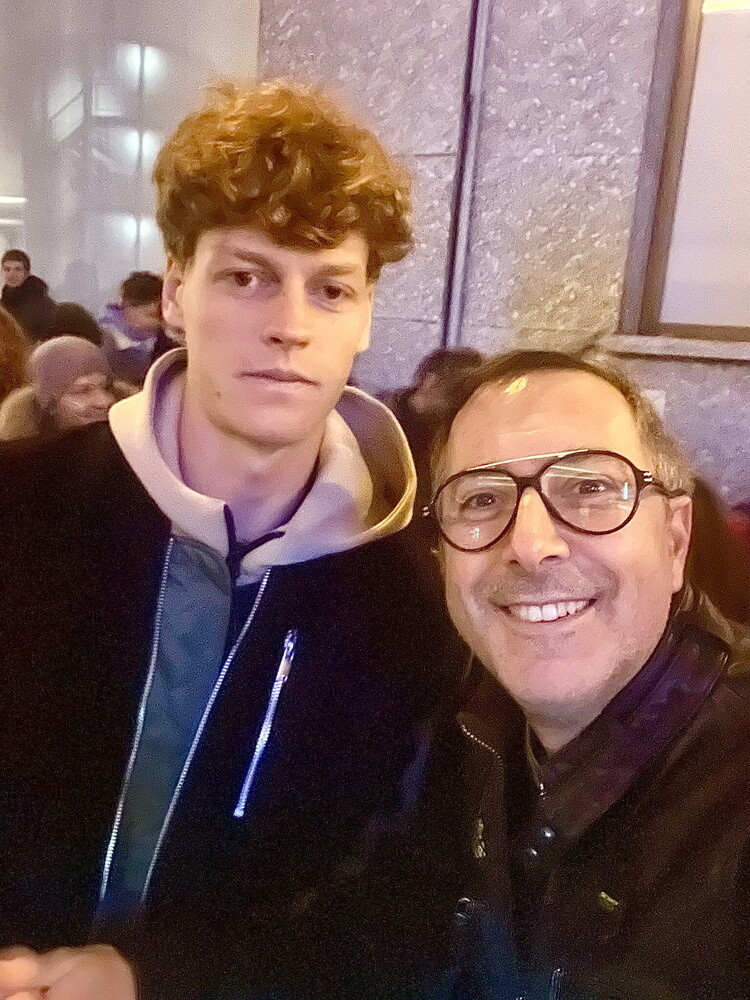In his first novel ‘Instant Love’ written in 2003, he included a lot of tennis, with the protagonist playing and some references to the great champions of the time, from Boris Becker’s volley to Steffi Graf’s forehand. In the last one, ‘The heart is a gypsy’ (Mondadori), a mystery that has nothing to do with rackets and clay but is set, coincidentally, in Alto Adige, two characters (father and son) whose surname is Sinner and are often asked “if they are related”.
Clues that, if that wasn’t enough ihis Facebook profile full of selfies with tennis players of yesterday and today, prove that Luca Bianchini, 54 years old, from Turin, home of the ATP Finals where he obviously was there, is part of the army of Italians ecstatic about the Azzurri’s repeat victory in the Davis Cup.
“I saw it on TV in London, where I was for a presentation of my book, with the commentators repeating “wonderful” – he says – I feel immense joy, for Italy, for the whole team, for Jannik Sinner but especially for Matteo Berrettini. After the injury that relegated him to the stands last year, this victory was very important for him.” However, Bianchini’s devotion is not of the last minute but was born, he tells AGI, in 1990 from viewing, on TV, of the final between Monica Seles and Steffi Graf, won by the first: “Those gestures, that pathos won me over, pushing me to learn to play. In Turin, my city, I climbed over the fences of the municipal fields with a friend of mine”.
Over the years he has become a good setter, but admits that the game is not for him: “In life I consider myself a courageous person, but not on the pitch, I get a bad arm. I empathize much more with the set points wasted by Berrettini in the semi-final against Kokkinakis than with Sinner’s ruthless determination.” In addition to having evoked the world number one in his latest novel, he met him in Turin during the ATP Finals: “I live near the Principi di Piemonte, the hotel where he stayed– he says – and one evening, around midnight, I met him as he was going out and I also got behind the barriers with the other fans”. What struck him, he analyzes, in addition to the stoicism with which Sinner took selfies (even with him) was “the fans’ sense of protection towards the champion, the religious silence in his presence, no push to get closer to him , it was like having in front of you a figure halfway between the Pope and a patron saint.”
On the night in Turin Sinner seemed even younger than his age, “with a baby face”, on the pitch against Argentina, Australia and the Netherlands “the protagonist of an opera, a tragic character who fights like a hero, despite the sword of Damocles above his head.” The reference is to the awaited ruling of the CAS on the Clostebol case: “I hope everything goes well, otherwise I am ready to go and protest under the headquarters of the court in Lausanne”. Of all the matches in Malaga, the writer was especially enraptured by the Sinner-Berrettini double in the match against Argentina: “It was the most exciting match, our national pride, in a world, including that of tennis, full of individualists, Matteo and Jannik for the first time together in Davis made themselves available to the courageous and desperate choice of captain Volandri”.
If the leader Sinner is a hero from a tragic opera, Berrettini jokes, “He’s a Hollywood actor, beautiful and with a cinema smile. He made only one mistake in his life, that of getting on the bus of the winners of the European Football Championships when he reached the Wimbledon final in 2021. But the days in Malaga gave us a rediscovered champion, who will do good for our tennis movement.” Could a varied cast of characters like that of Davis inspire him to write a new novel, this time openly tennis-related? “Who knows, I’m starting to think about it”. Meanwhile he delivered his first book ‘Instant love’ into the hands of Graf, who was in Cuneo for an event of his charitable foundation. And there too, obviously we took a selfie.
